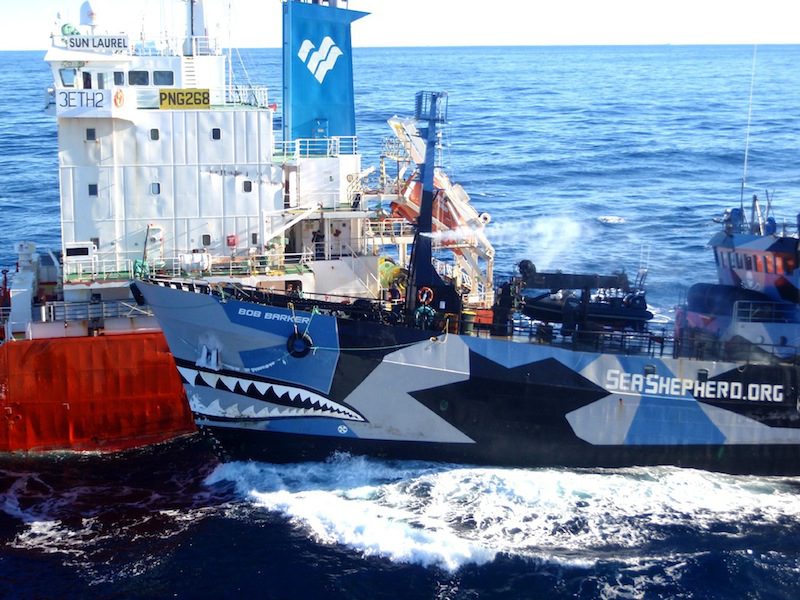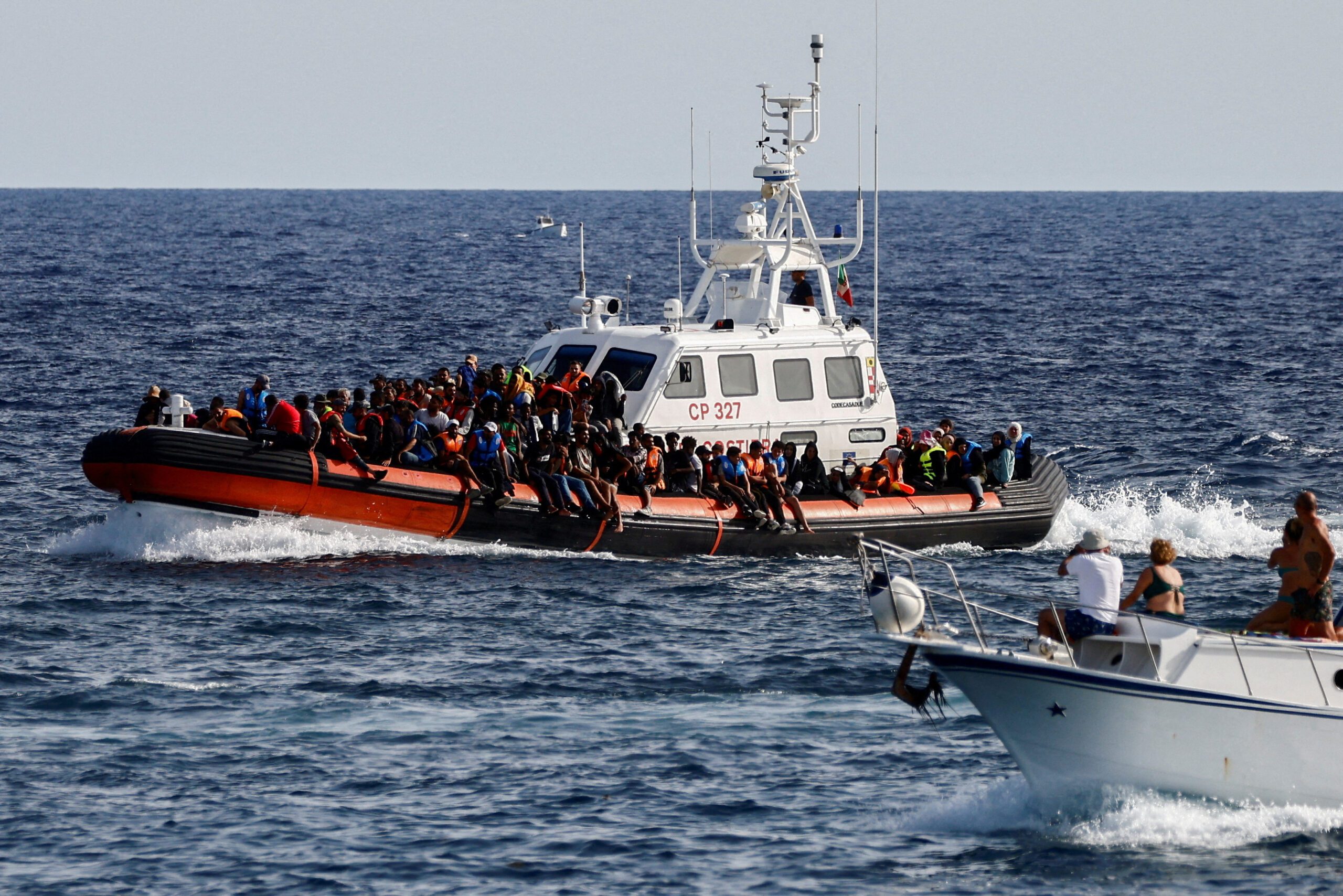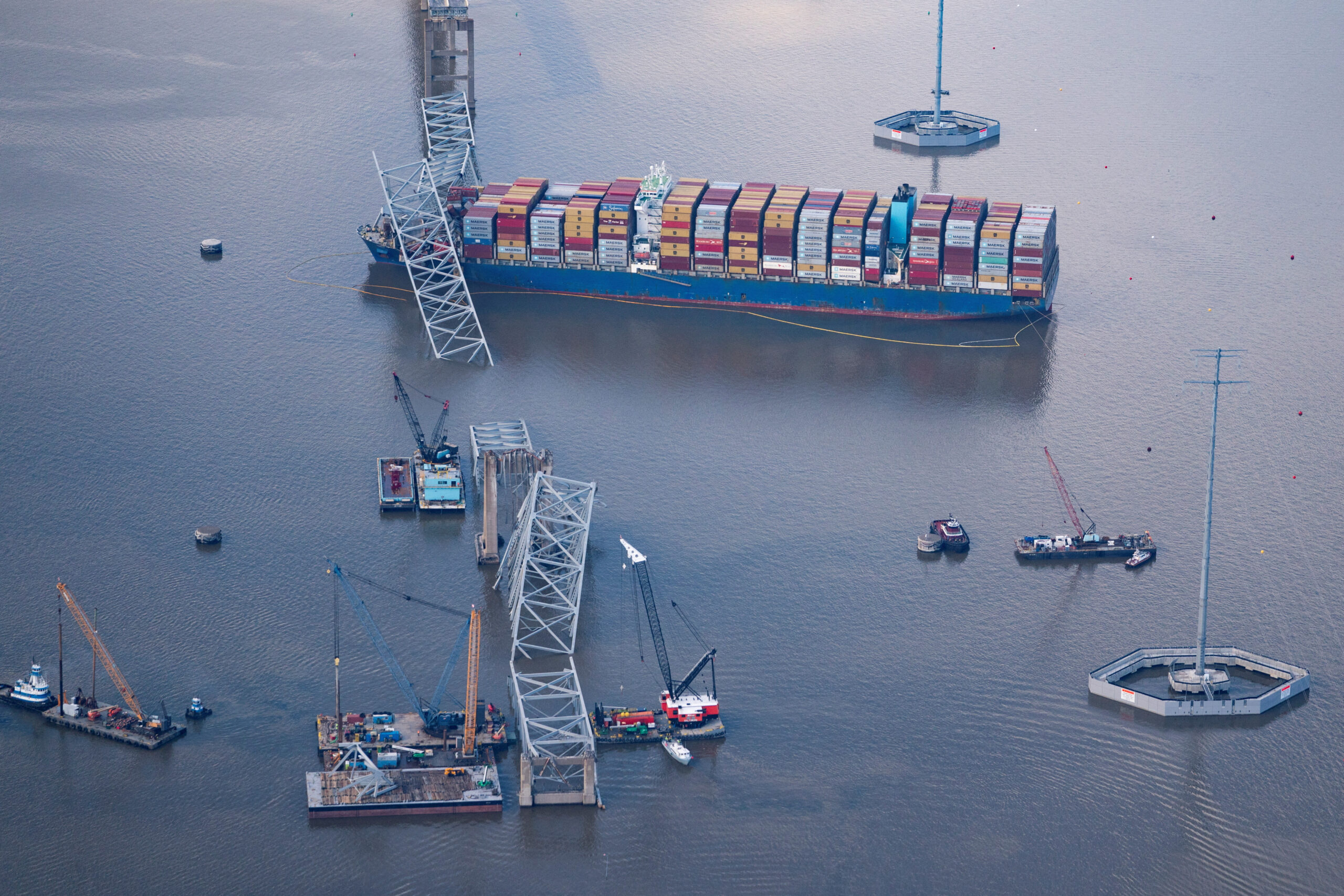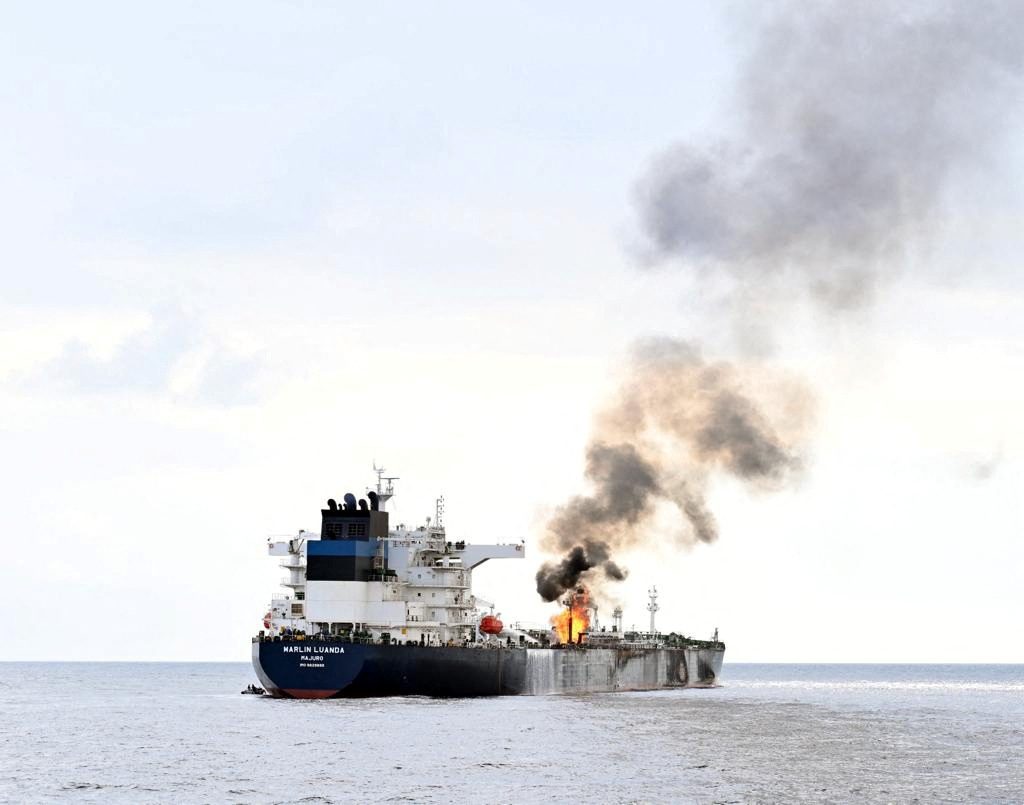Sea Shepherd Ship Bob Barker collides with the refueling tanker Sun Laurel February 25, 2013 in the Southern Ocean REUTERS/The Institute of Cetacean Research/Handout
By Bruce Einhorn
(Bloomberg Business) — It’s summertime at the bottom of the world, and while the living is never easy in the Antarctic, this is the season when the sun stays up, the ice retreats, and tourists arrive. It’s also the time of year whalers from Japan slug it out with environmentalists from around the world. Not this year, though. Japan is sitting out the whaling season after a setback at the International Court of Justice last March, when the United Nations tribunal ordered a halt to the hunting of whales in the Southern Ocean in what the Japanese government has always insisted was scientific research.
Prime Minister Shinzo Abe’s government isn’t throwing in the towel. Within weeks of the court ruling, the agriculture minister announced that Japanese ships would revise the program to win approval for a return to the Southern Ocean next year.
For now, though, things are quiet. So what’s a group of confrontational environmentalists to do when their main rival calls a timeout? Sea Shepherd, the ocean conservation group that has taken the lead in harassing Japanese whalers, is now targeting ships illegally fishing for Chilean sea bass, also known as toothfish. As part of Operation Icefish, the Sam Simon (the ship named for the co-creator of “The Simpsons” and Sea Shepherd supporter) today intercepted two poachers wanted by Interpol near the Ross Sea, the group said. “The Sam Simon is now committed to blockading the fishing operations” of the two ships, Sid Chakravarty, captain of the Sam Simon, said in a statement.
Meanwhile, the Bob Barker (the Sea Shepherd ship named for the game-show host who is a donor) is following another such culprit, the Thunder, which Sea Shepherd calls a notorious poacher. The Thunder chase has been going on since mid-December, says Peter Hammarstedt, 30, the captain of the Bob Barker who was born in Sweden and grew up in New Hope, Pa. “I can see them right now,” he boasts, speaking via satellite phone about 500 miles southeast of South Africa. “We are stuck to them like glue, monitoring what they do on a daily basis.”
The Thunder, he believes, is trying to drag out the chase until the 29 sailors aboard the Bob Barker run short of fuel, food, or patience and has to give up. “It’s a war of attrition,” says Hammarstedt, a veteran of nine Sea Shepherd antiwhaling campaigns.
Sea Shepherd critics says the group’s whale-war tactics are unlawful, and in December they won a victory when a federal appeals court in California held the U.S. arm, the Sea Shepherd Conservation Society, in contempt of court for its campaign against Japanese whalers.
In the toothfish fight, however, the activist group is pursuing a target already identified by international law enforcement. Fourteen months ago, Interpol issued a notice on “the illegal actions” of the Thunder, a ship that “has used three identities interchangeably, including the use of removable name plates with different vessel names” to “avoid the detection of prohibited fishing activities.”
The Thunder isn’t the only toothfish poacher on Interpol’s radar. Last month, Interpol issued alerts for three other ships (including the two intercepted by the Sam Simon today) for “being engaged in fraud and fisheries-related crime” near New Zealand.
The rogue ships are flouting the rules established for fishing in the Southern Ocean set by the Commission for the Conservation of Antarctic Marine Living Resources (CCAMLR), which has 25 members. An additional 11 countries have acceded to the CCAMLR convention regulating fishing in the waters off the frozen continent but countries that aren’t members don’t get a free pass.
Under the Law of the Sea, states are required to cooperate with legal management organizations, says Andrew Wright, executive secretary of CCAMLR. “The operations of the Thunder are undermining the regulatory framework,” says Wright, who is based in Hobart, the capital of the Australian state of Tasmania. The ship “has a long history of venturing into the CCAMLR Convention area” but doesn’t report its catch to CCAMLR or have any inspectors on board. “There’s no escaping the fact that [the Thunder] is unregulated, operating outside the regulatory framework,” he says. “We don’t have any data on their operations.”
The industry group representing fishermen who do comply with CCAMLR’s rules are welcoming the sudden attention to the toothfish by Sea Shepherd, even though it says the situation isn’t really all that dire. Martin Exel, chairman of the Coalition of Legal Toothfish Operators, says the amount of illegal, unregulated, and unreported toothfish has declined dramatically, thanks to tighter regulation and stricter enforcement. “The stocks are actually very healthy,” he says.
The toothfish industry happens to be in the right place at the right time. “Japan halted its whaling so Sea Shepherd had the operation ready to go, the boats, the people,” he says. “The only major possible illegal operation was the toothfish.” Still, “it’s a great thing what they’re doing,” he says. “They are highlighting a real problem in international high seas fisheries.”
As the fight against the toothfish poachers continues, Sea Shepherd is getting more help. Last week, Sea Shepherd received an €8.3 million ($9.4 million) donation from the Dutch Postcode Lottery to finance the purchase of an additional ship to fight poaching.
Meanwhile, theBob Barker is still trailing the Thunder. Typically, a poaching ship that gets caught on the high seas will try to change its name and flag and make it to a port undetected, says Bob Barker’s Hammarstedt. “As long as we are with them, that’s not an option,” he says. “We want to make sure the illegal catch is confiscated, the crew is arrested, and the vessel is seized and never used again.”
Copyright 2015 Bloomberg.
Unlock Exclusive Insights Today!
Join the gCaptain Club for curated content, insider opinions, and vibrant community discussions.

 Join The Club
Join The Club













